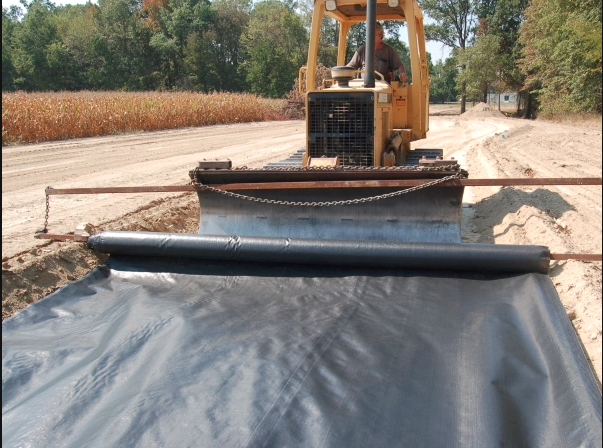A geomembrane may sound like a medical experiment gone wrong, but its uses and applications are both varied and fascinating. Geomembranes are synthetic membrane liners or barriers used to control fluid migration in a manmade project, structure, or system. They are made from relatively thin continuous polymeric sheets that are sometimes made from the infusion of geotextiles with asphalt, elastomer, or polymer sprays. This means that their applications to geotechnical engineering and other industrial clients are endless.
Geomembranes are being used in environmental, hydraulic, transportation, and oil and gas applications as well as the waste industry. The most common type are the continuous polymeric sheets. When larger geomembranes are needed, they are thermally or chemically melted together at the seams for strength and durability. The size of the geomembrane is completely customizable, so they are can be as small as a backyard fish pond or as large as a football field if necessary.
To get a better idea of what you can use a geomembrane for, here are just some of the most common uses:
- As liners for potable or reserve water (e.g., safe shutdown of nuclear facilities)
- As fish pond liners
- As liners for waste liquids (e.g., sewage sludge), radioactive or hazardous waste liquid
- As liners for the agriculture industry
- As liners for various waste conveyance canals
- As liners for primary, secondary, and/or tertiary solid-waste landfills and waste piles
- As linings for emergency spillways
- As waterproofing liners within tunnels and pipelines
- To contain and transport liquids in trucks
- To contain and transport potable water and other liquids in the ocean
- Beneath highways to prevent pollution from deicing salts
- Beneath and adjacent to highways to capture hazardous liquid spills.
Basically, geomembranes are used wherever loss of material cannot be allowed, be that clean water, wastewater, vapor, soil, hazardous materials, or any other substance that doesn’t need to escape its designated space. Because flowing, pooling, frozen, and standing liquids (and even vapors) can be so devastating if not managed properly, these geomembranes have allowed industries to continue to develop and support many more projects than previously done before.
